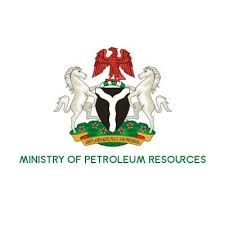
The $15.6 billion Abidjan-Lagos Corridor Highway, a landmark initiative aimed at enhancing trade and fostering regional integration in West Africa, will require approximately $6.8 billion in private-sector funding.
This investment need was disclosed in a report presented by the consultancy firm behind the Spatial Development Initiative during an online workshop organized by the African Development Bank (AfDB) and project partners last Thursday.
The disclosure was contained in a statement published on the AfDB’s website on Tuesday, which provided the details of the workshop the bank held with the project partners of the transnational coastal road.
The report identified 206 specific interventions requiring private sector contributions. These interventions focus on transformative investments in critical sectors such as energy, renewable energy, manufacturing, transport and logistics, agriculture, ICT, tourism, mining, and special economic zones, positioning the corridor as a hub for economic growth and industrialization.
“In a report presented by the consultancy firm responsible for devising the Spatial Development Initiative, 206 specific interventions were identified that could initially require primarily private sector funding investments of around $6.8 billion. The spheres targeted for transformative investment include energy, renewable energy, manufacturing, transport and logistics, agriculture and agri-industry, ICT, tourism, mining, and special economic zones,” the statement read in part.
Spanning 1,028 kilometers, the transnational coastal motorway is set to connect Côte d’Ivoire to Nigeria while traversing Ghana, Togo, and Benin. The highway, designed to link key urban centers and enhance regional transportation, is scheduled to commence construction in 2026 and is expected to be completed by 2030.
The statement highlighted that the African Development Bank (AfDB) has already facilitated feasibility studies, explored financing options, and established the Abidjan-Lagos Corridor Management Authority to ensure the project’s progress.
More insights
The statement provided detailed insights into the Abidjan-Lagos Corridor Highway, highlighting its design as a toll-free road with four to six lanes, expanding to eight lanes in Lagos, and featuring 63 interchanges along its route.
- Covering 144 kilometers in Côte d’Ivoire, 90 kilometers in Togo, 127 kilometers in Benin, 520 kilometers in Ghana, and 82 kilometers in Nigeria, the highway is projected to create up to 70,000 direct and indirect jobs. The construction will largely rely on public-private partnerships to drive its execution.
- Mike Salawou, Director of the African Development Bank’s Infrastructure and Urban Development Department, emphasized that the highway goes beyond being a transportation link.
- Salanwou noted that it is envisioned as an economic corridor designed to stimulate industrialization and foster the development of economic hubs. He stressed its importance in connecting urban centers, secondary cities, and rural areas, driving inclusive growth across the five nations.
- Similarly, Chris Appoiah, Director of Transport at the Economic Community of West African States (ECOWAS) Commission, highlighted the strategic role of the highway in advancing ECOWAS’ regional integration goals, describing it as a pivotal step toward achieving the region’s economic union.
Lydie Ehouman, Chief Transport Economist and Project Manager at the AfDB noted that the highway will connect key urban hubs such as Abidjan, Takoradi, Accra, Lomé, Cotonou, Porto-Novo, and Lagos while integrating inland nations like Mali, Burkina Faso, and Niger into the region’s economic framework.
She further pointed out that the corridor is expected to support an urban population projected to reach 173 million by 2050, enhancing trade, connectivity, and industrial growth across West Africa.
SOURCE: NAIRAMETRICS






ed treatments: best erectile dysfunction pills – best erectile dysfunction pills